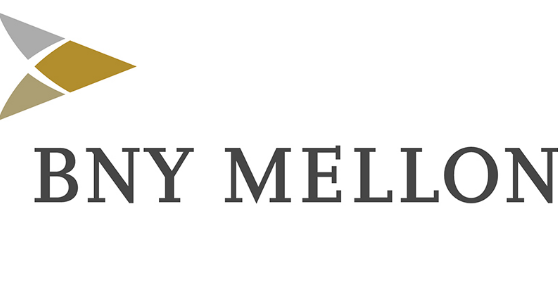 Bank of New York Mellon (BNY) is the largest custodian in the world, with assets in its custody of $34.5 trillion, and has been experimenting with Blockchain technology since 2016.
Bank of New York Mellon (BNY) is the largest custodian in the world, with assets in its custody of $34.5 trillion, and has been experimenting with Blockchain technology since 2016.However, the first firm it has agreed to look after it’s Digital Assets on a public Blockchain is Bakkt. Bakkt is a company backed by International Clearing Exchange (ICE) which, in turn, owns and runs over a dozen regulated stock exchanges around the world. BNY is keen to emphasise that it is currently providing “safekeeping of Digital Assets for Bakkt” and not providing a custody service for them, partly because BNY feels the need to have far more regulatory clarity before it can offer full custody services.
One of BNY’s bigger custody competitors, Northern Trust, is also looking at offering custody for Digital Assets (according to Forbes) as it realises it, too, needs to keep ‘up to speed’ with how it may be able to offer services for those that wish to deal with this fast developing new asset class – Digital Assets. However, it is not just both the massive and traditional existing custodians who are looking at offering custody services for Digital Assets. Anchorage is a newly launched, crypto-custody firm backed by Silicon-valley based and highly successful VC investors, Andreessen Horowitz.
Bank Frick is a private bank based in Liechtenstein which now has a range of Blockchain-banking services, including Digital Asset custody. BitGo, from California, has been offering for Bitcoins a qualified custodian service since 2018. The California-based company is using its six years of experience as a ‘security-as-a-service provider’ to provide financial institutions and fund managers with Digital Asset custodianship. Also from California, San Francisco-based Digital Asset exchange and wallet provider, Coinbase, added a crypto custody service to its offering in 2018. Coinbase Custody is a qualified custodian which enables institutional investors to store over 30 different Digital Assets securely with a regulated and insured third-party storage solutions provider. Regulated Digital Asset exchange, Gemini, launched its qualified custodian service for institutional investors also in 2018.
Fidelity Digital Assets is the recently launched crypto-venture by Fidelity Investments Inc, which has $7.2 trillion of clients assets. The New York-based asset manager launched its crypto custody service in March 2018. Also in New York, Digital Asset exchange itBit launched a crypto-custody service last year to complement its exchange and Over The Counter (OTC) business. As a regulated New York State Trust Company, itBit ensures that all customer assets and funds are fully backed by mandatory capital reserves.
Alternative asset custodian Kingdom Trust, launched in 2017, was one of the first custodians to provide Digital Asset storage solutions. Currently, the Kentucky-based company has become a market-leading qualified Digital Asset custody service, with insurance provided by Lloyd’s of London. Koine, launched in June 2019, offers Digital Asset custody and settlement for institutional clients. The London-based start-up is targeting trading venues, institutional investors, Digital Asset issuers, and market infrastructure providers.
Prime Trust is a Las Vegas-based qualified Digital Asset custodian which supports Bitcoin, ETH, and ERC20 tokens. Finally, Xapo is one of the longest-standing Bitcoin storage solution providers. In the past five years, the Hong Kong-based company has grown its assets in storage to over 700,000 BTC (around $5.6 billion), making it the largest Digital Asset custodian in the world. No wonder Coinbase and Fidelity are reportedly in talks to acquire Xapo!
So clearly there is considerable interest from various different companies in offering custody for Digital Assets. Although there is an argument that, given the de-centralised and immutability that Blockchain technology offers, do we need custodians, and could their services be replaced by using a trustee? This is significant, as in the UK, you currently do not need to be regulated by the Financial Conduct Authority (FCA), to be a trustee, which potentially could reduce the amount of regulatory capital a company needs and it lowers an organisation’s insurance premiums, and would also help in reducing the compliance monitoring costs.


